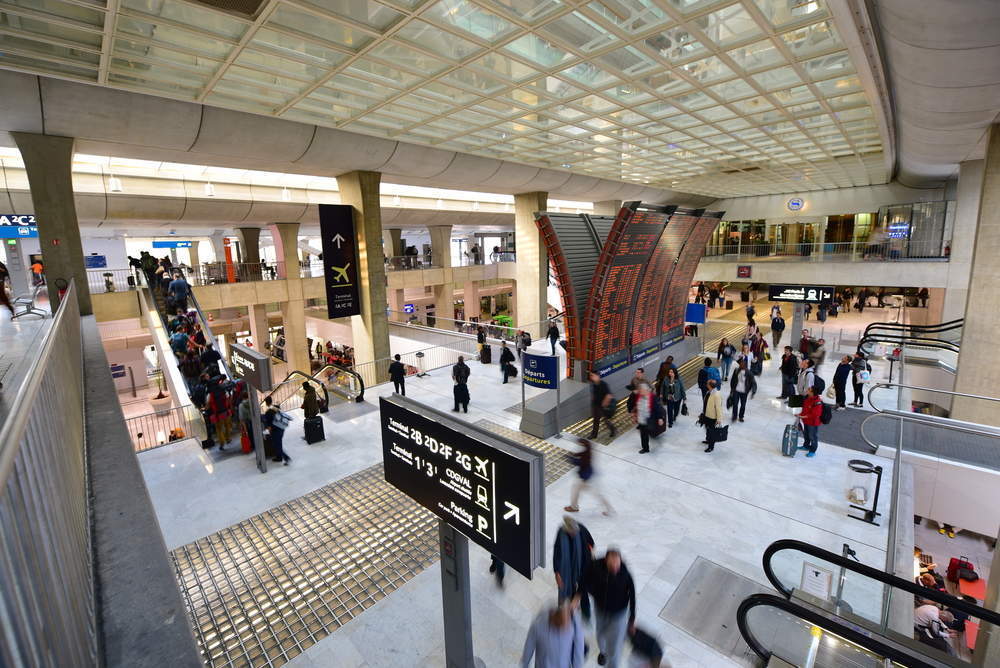
Public service workers, including teachers, hospital staff, air traffic controllers and rail staff, will down tools today in France in protest against President Emmanuel Macron’s labour reforms.
Seven trade unions have encouraged public sector workers to go on strike today over what they view as a threat to job security.
They have accused Macron of attempting to scrap the public sector. The French President has pledged to cut 120,000 public jobs over the next five years.
It is expected that staff will be offered voluntary redundancies and replaced with contractors.
Workers are also unhappy that pay hasn’t increased with the rate of inflation.
The walkouts began at 6pm London time on Wednesday, 21 March. They are expected to last until 5am on Friday, 23 March, unless the issue is resolved.
How well do you really know your competitors?
Access the most comprehensive Company Profiles on the market, powered by GlobalData. Save hours of research. Gain competitive edge.

Thank you!
Your download email will arrive shortly
Not ready to buy yet? Download a free sample
We are confident about the unique quality of our Company Profiles. However, we want you to make the most beneficial decision for your business, so we offer a free sample that you can download by submitting the below form
By GlobalDataMore than 140 protests are expected to go ahead across the country today. One demonstration in Paris expected to see 25,000 workers turn out.
Should the French strikes today fail to work, rail workers have planned regular strikes between 3 April and 28 June.
Workers from Air France, a private company, will also strike today, causing further disruption to travel in and out of France. Workers are seeking a 6% pay rise, with further action planned.
What services will be affected by French strikes today?
Travel
The biggest disruption will be to travel this morning, as French employees make their way into work.
Hundreds of rail services ran by leading rail operators SNCF and TGV have already been cancelled across the country, with further disrupted expected. Those in Paris have been advised to avoid using public transport, with only a quarter of the usual amount of trains running on some lines.
The Paris metro is running normally, but expect overcrowding as people seek alternative routes.
As people avoid public transport, traffic jams tailing back 300 kilometres were reported in the capital this morning.
Those travelling in, out or over France today can also expect delays as airline staff and air traffic controls join in the protests. Air France has already cancelled up to 30% of its short haul flights set to depart Paris airports today. Nice and Toulouse airports have also seen cancellations.
Likewise, the French government has forced major airports to cancel 30% of inbound flights.
However, the strikes are also causing disruption to travel services outside of France. With a lack of controllers operating in France, flight operators are forced to find alternative flight paths to avoid delays.
Similar strikes last year grounded more than 100,000 passengers across Europe.
Budget flight operators Ryanair and easyJet have already cancelled flights set to depart from various European destinations this morning.
A spokesperson for trade association Airlines for Europe has said:
“Air traffic control strikes in Europe are a massive problem, impacting travellers, business, tourism and ultimately local economies.”
Schools
Some schools have been shut, but most will remain open but run on a minimum service. Parents have been asked to pack their children a lunch as canteens are expected to close.
According to reports, 10% of Paris primary schools will be shut today, with 50% of teaching staff expected to walk out. Numbers will also be greatly reduced in Creuse and Seine-Saint-Denis.
Primary school union SNUipp-FSU has reported that many teachers have decided against a walk out as they fear their concerns will be overshadowed by striking transport staff. They expect 25% of childcare professionals to take part.
Hospitals
Emergency rooms are also expected to be impacted by the strikes, as hospital staff walk out over similar concerns about pay and job security.
Those in France can also expect disruption to less vital services such as libraries due to limited staff numbers.
What was said:
Speaking to digital news publisher The Local, Yves Veyrier, a spokesperson for union Force Ouvriere, said:
“These strikes are always difficult and we know that is not good for transport users and the public in general,”
“We would prefer not to strike and would prefer to have a debate with the government, but we have asked Presidents Nicolas Sarkozy, Francois Hollande and now Emmanuel Macron and we are still waiting for it,”
“People must understand, this is a last resort and this is about the future of France’s public service for everyone.”
Background:
Macron pushed through sweeping new labour reforms in September 2017, despite opposition from protesters. These reforms made it easier for companies to hire and fire employees.
Macro hopes this will help to improve the economy and lower unemployment. However, these reforms have been met with backlash from unions. They feel that it threatens job security and could lead to poor treatment of workers.
French strikes today are expected to be one of many should Macron fail to address the concerns of public service workers.







